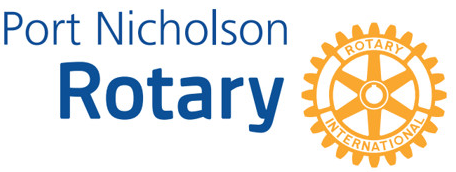Our Speaker: Professor Nick Wilson

Nick commenced by noting that he has worked in the Pacific on polio eradication and commended the fantastic financial and support work of Rotary as we near worldwide polio eradication. The topic of Nick’s talk today, however, was the value of applying taxes to change adverse health behaviours. At the commencement of his career in public health Nick was of the view that taxation was quite a heavy handed approach, and that there should be more emphasis on health education. Over the course of his career Nick has undertaken a number of research projects looking at the effects of taxation on, for example, smoking, alcohol consumption, salt in food and carbon taxes/carbon pricing. His view overall now is that the evidence shows that taxation has a strong role to play in behaviour modification – of both individuals and companies. In every case increasing taxes on ‘harms’ has reduced consumption and led to public health benefits.
Some salutatory findings that Nick highlighted include:
- - There has been a steady decrease in smoking in response to higher tax on tobacco – calls to Quitline shoot up each time tobacco tax is increased and modelling shows very significant health gains, especially so for Maori who have higher smoking rates in combination with more sensitivity to price rises. Moreover, most NZ smokers support higher taxes on tobacco, if they are used to support quit programmes. While taxation is working to reduce smoking rates it is not enough on its own to reach the government’s target of a 5% smoking rate by 2025.
- - Alcohol is becoming ever more affordable – per standard drink beer is now cheaper than water and it only costs $2.78 to drink more than the legal limit. The government has consistently declined to raise tax on alcohol, despite the public health costs of excessive alcohol consumption being well understood and significant.
- - Reduction of table salt in food, potentially substituting it with ‘LO salt’ (potassium chloride, as opposed to sodium chloride) has large health gains in terms of reducing high blood pressure, strokes, and heart attacks. Work is underway to look at designing bread recipes to further reduce salt content.
- - The typical NZ diet results in releasing 10kg of carbon dioxide per person per day. Changing diets to a Mediterranean diet halves this emission level, and has proven health benefits. Carbon taxes and emissions trading schemes are designed to decrease greenhouse gases, although the agriculture industry in NZ is currently exempt. Nick argues that if the Agriculture industry was subject to ‘paying for it’s pollution’ then price increases in beef and lamb may drive different food choices – although he acknowledges that this is controversial.
In concluding Nick noted that new taxes, for example on soft drinks sugar and junk food, are being explored and the workability and health value of these need to be tested. Five years out he expects taxes on tobacco and production of greenhouse gases to increase and the introduction of new taxes, but possibly no change in the government’s view on taxing alcohol.
Teresa
